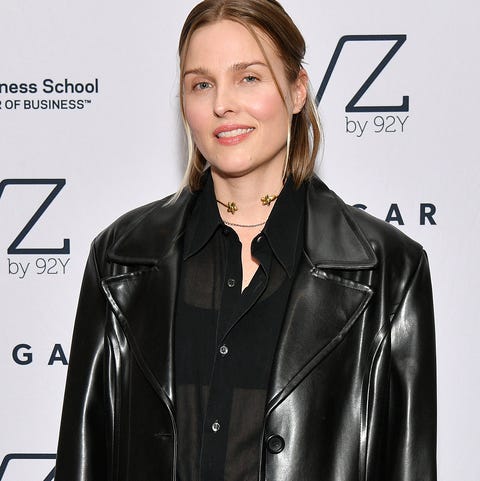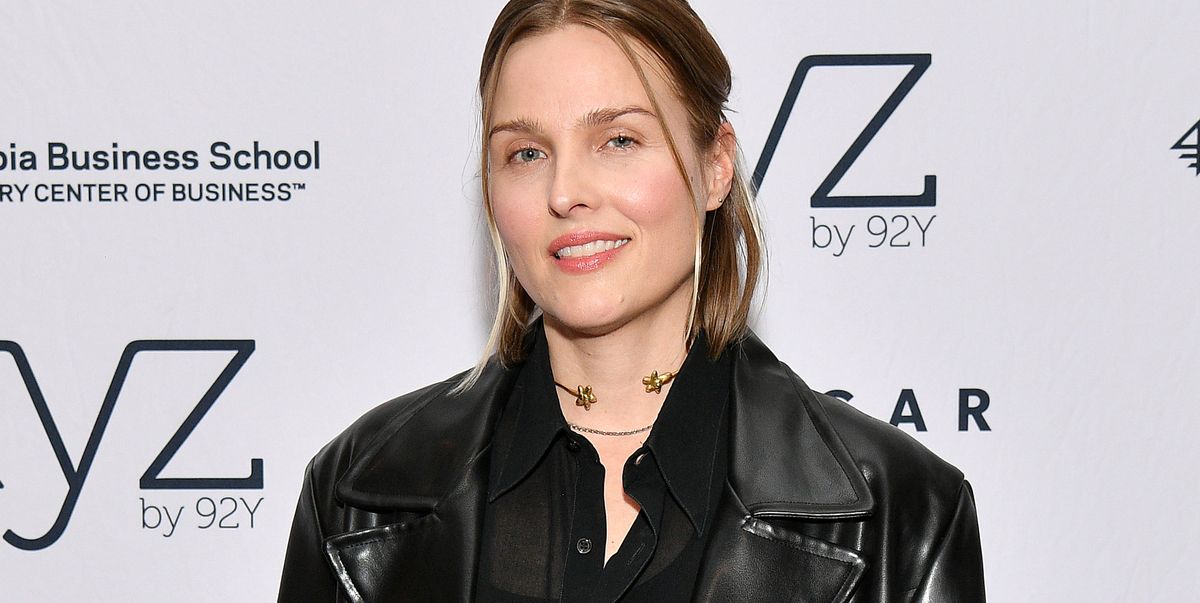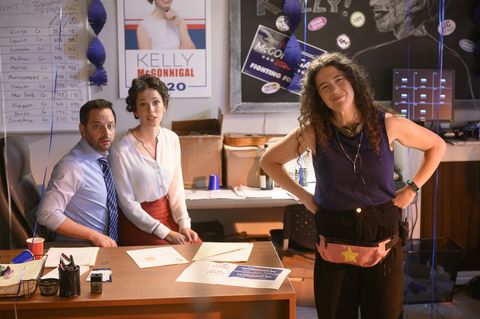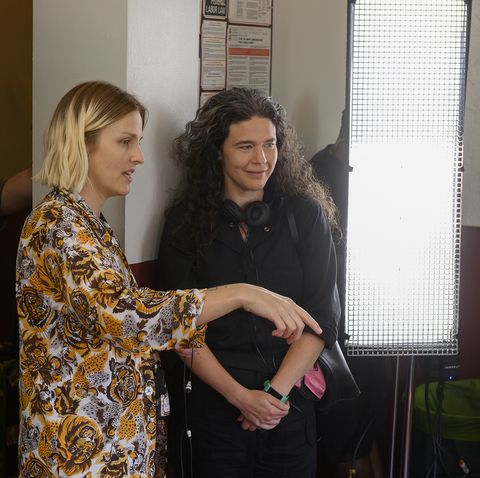
Dia DipasupilGetty Images
Life, in the end, is all about growth, and finding the beauty in that process. At least, that’s the world Katja Blichfeld and Ben Sinclair have crafted in their much-lauded series, High Maintenance. In the years since its start on Vimeo, the show—now on HBO in its fourth season—has continued telling interesting, original, and empathy-forward stories about New York’s inhabitants and the weed dealer (Sinclair) who helps them all through it. It’s an intimate series in every sense of the word, one that’s constantly evolving and weaving personal details from the lives of Blichfeld, Sinclair, and the other writers. This year found the often nudity-filled show both working with an intimacy coordinator for the first time and also depicting the profession on TV. ELLE.com got on the phone with co-creator, writer, and director Blichfeld to talk about the series’ run, vulnerability in storytelling, and telling meta tales.
Going into your fourth season with HBO, does it get harder to keep finding exciting and interesting ways to tell these unique stories? Or are there a wealth of stories to tell?
It gets harder, only because of the pressure we feel to keep getting positive feedback for the stories we’re telling. We have a pretty good track record on that front, so that might be one of the bigger stressors. There’s certainly no shortage of stories out there, and as the years have gone on, we’ve continued to bring on more collaborators to generate these stories, so it’s actually gotten a bit easier in that way. The hard part becomes how to choose which stories we’re going to give those slots to.
Your process has always involved working with your friends and being very collaborative. Have you refreshed that perspective by bringing on new people?
Refreshing the perspective is a great way to describe it. We are relying on this beautiful group of collaborators and writers who contribute so much by way of their natural curiosity, and the intelligent discourse we get to have in that room. The best moments of our show are products of hours and hours of conversation in the writers’ room; people sharing their stories, and then we get to pan for gold. We look for writers who have observational acumen, and that has served us very well.
I imagine it’s an incredibly vulnerable room compared to others.
I only know what my room is like since we brought in writers in season 2 [Blichfeld and Sinclair wrote season 1 alone], but we have always had the luxury of emotionally generous writers who are willing to be vulnerable. Ben and I set the tone by sharing, in a lot of detail, what we were going through at that time, which happened to be a pretty recent breakup. That kicked off a confessional vibe in the room that has stayed that way over the seasons. We [work with] people who feel like they’re willing to go there in their regular life as well. Because we’re willing to go there and share a lot of deeply personal things, it creates a feeling of safety to do the same.
Do you find yourself surprised by the new levels and layers of humanity—and our similarities—that you uncover during those conversations?
Oh, sure. I’m always surprised anew at the ways in which we are all similar, and how the more specific people get with their personal narrative, the more universality is suddenly uncovered. I don’t know why it works that way, but when you go below the surface, that’s when the connectivity starts to show itself.
I want to talk about the intimacy coordinator featured in episode 2, because they’ve been such a big deal in the past few years.
This was the first season we’ve used an intimacy coordinator, as it is a relatively new position in entertainment. Given the sexual storylines and nudity, both sexual and non-sexual, that we have in the show, we’ve always tried to make it as comfortable and respectable a shooting environment [as possible] for those kinds of scenes. But I’ve always felt like we could do better. It was so cool to find out that there was a person out there whose sole job it was to facilitate making those situations more comfortable. That took so much pressure off, as a director. Even before we actually worked with one, we were talking a lot about that position and the many reasons why it was great that it existed in the [writers’] room.
There was something that came out while we were in the room that contributed to the conversation, as well as some of our writers coming from other productions and reflecting on the ways intimacy coordinators could have been used in those situations. It naturally happened. When people ask me, ‘where did you get the idea for that storyline?’ it’s always so hard to pinpoint the origin because it becomes such a blur of conversation. We talk more than we write when we’re sitting in that room, hours and hours of conversation and little detours and off-roading that eventually lead back to these things. We got lucky that Isaac Oliver wrote such a beautiful script to work with, too; he captured something really special. I’m happy with the way we were able to showcase the importance of that job without feeling like a showbiz episode where we were getting into the nitty gritty of a job.
What was it like having one on set?
It was such a relief to be able to turn to a person for these moments that, in the past, we’ve had to navigate to our best ability. It was great that there was actually a procedure and a protocol. And it got really super meta on that episode in particular, because Alicia [the High Maintenance intimacy coordinator] just so happened to bear some resemblance and have a similar demeanor to Abigail [Bengson], the actress playing the intimacy coordinator. At certain points Alicia was pulling double duty, advising me, the real-life director, on how to handle nudity or a kiss or blocking in a scene, and then addressing the realities of the job in rehearsals since we sometimes allow for a little bit of improv. She would say, ‘I would never say that,’ because of these reasons.
Was it difficult threading the needle on her finding this deep connection with someone who’s asexual without the story coming across as corny?
Well, not particularly, and I’ll say this: The cast is what really brought it all together for me. We already knew what we were getting with Avery Monson, who plays Evan the asexual magician—we knew he was bringing a ton of empathy and kindness to the table, and really good acting. And then we saw Abigail Bengson’s audition and that is, for me, when it really came together. She put the bow on it because she was such a generous performer and person. The way she is in that episode is very true to one’s experience with her in real life. She is that warm, and such a good listener, trying to put everybody around her at ease. When you have two actors like that, who are naturally wired towards connectivity, I don’t know how you could go wrong. I think the cast is really the heart and soul of High Maintenance, and our greatest resource in many, many ways.
I haven’t lived in New York in a long time, but the show feels like it’s actually the New York that exists, or that it’s filled with the air of New York’s lungs in a way I don’t know how to describe.
I feel that way! Certainly the New York that I know and love. I’ve heard criticism that we look at things with rose-colored glasses or are ascribing quirk to our city that just isn’t that romantic, but I don’t know. I’ve been accused of being a little bit romantic, and I think that’s true, but this is genuinely how we see our city. Our room is filled with people who really see people beyond what is on the surface, and I’m glad that comes through [in] different ways.


